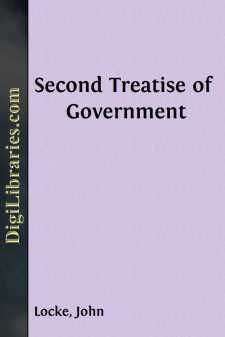Categories
- Antiques & Collectibles 13
- Architecture 36
- Art 48
- Bibles 22
- Biography & Autobiography 813
- Body, Mind & Spirit 142
- Business & Economics 28
- Children's Books 17
- Children's Fiction 14
- Computers 4
- Cooking 94
- Crafts & Hobbies 4
- Drama 346
- Education 46
- Family & Relationships 57
- Fiction 11829
- Games 19
- Gardening 17
- Health & Fitness 34
- History 1377
- House & Home 1
- Humor 147
- Juvenile Fiction 1873
- Juvenile Nonfiction 202
- Language Arts & Disciplines 88
- Law 16
- Literary Collections 686
- Literary Criticism 179
- Mathematics 13
- Medical 41
- Music 40
- Nature 179
- Non-Classifiable 1768
- Performing Arts 7
- Periodicals 1453
- Philosophy 64
- Photography 2
- Poetry 896
- Political Science 203
- Psychology 42
- Reference 154
- Religion 513
- Science 126
- Self-Help 84
- Social Science 81
- Sports & Recreation 34
- Study Aids 3
- Technology & Engineering 59
- Transportation 23
- Travel 463
- True Crime 29
John Locke
John Locke (1632–1704) was an English philosopher and writer known as one of the most influential Enlightenment thinkers. His most famous works, "Two Treatises of Government" and "An Essay Concerning Human Understanding," laid the foundation for modern political theory and empiricism. Locke argued for the natural rights of life, liberty, and property, and his ideas deeply influenced the development of liberal democracy and the U.S. Constitution. Additionally, he advocated for religious tolerance and the separation of church and state in "A Letter Concerning Toleration."
Author's Books:
Sort by:
by:
John Locke
CHAPTER I. OF WORDS OR LANGUAGE IN GENERAL. 1. Man fitted to form articulated Sounds. God, having designed man for a sociable creature, made him not only with an inclination, and under a necessity to have fellowship with those of his own kind, but furnished him also with language, which was to be the great instrument and common tie of society. Man, therefore, had by nature his organs so fashioned, as...
more...
by:
John Locke
PREFACE Reader, thou hast here the beginning and end of a discourse concerning government; what fate has otherwise disposed of the papers that should have filled up the middle, and were more than all the rest, it is not worth while to tell thee. These, which remain, I hope are sufficient to establish the throne of our great restorer, our present King William; to make good his title, in the consent of...
more...



